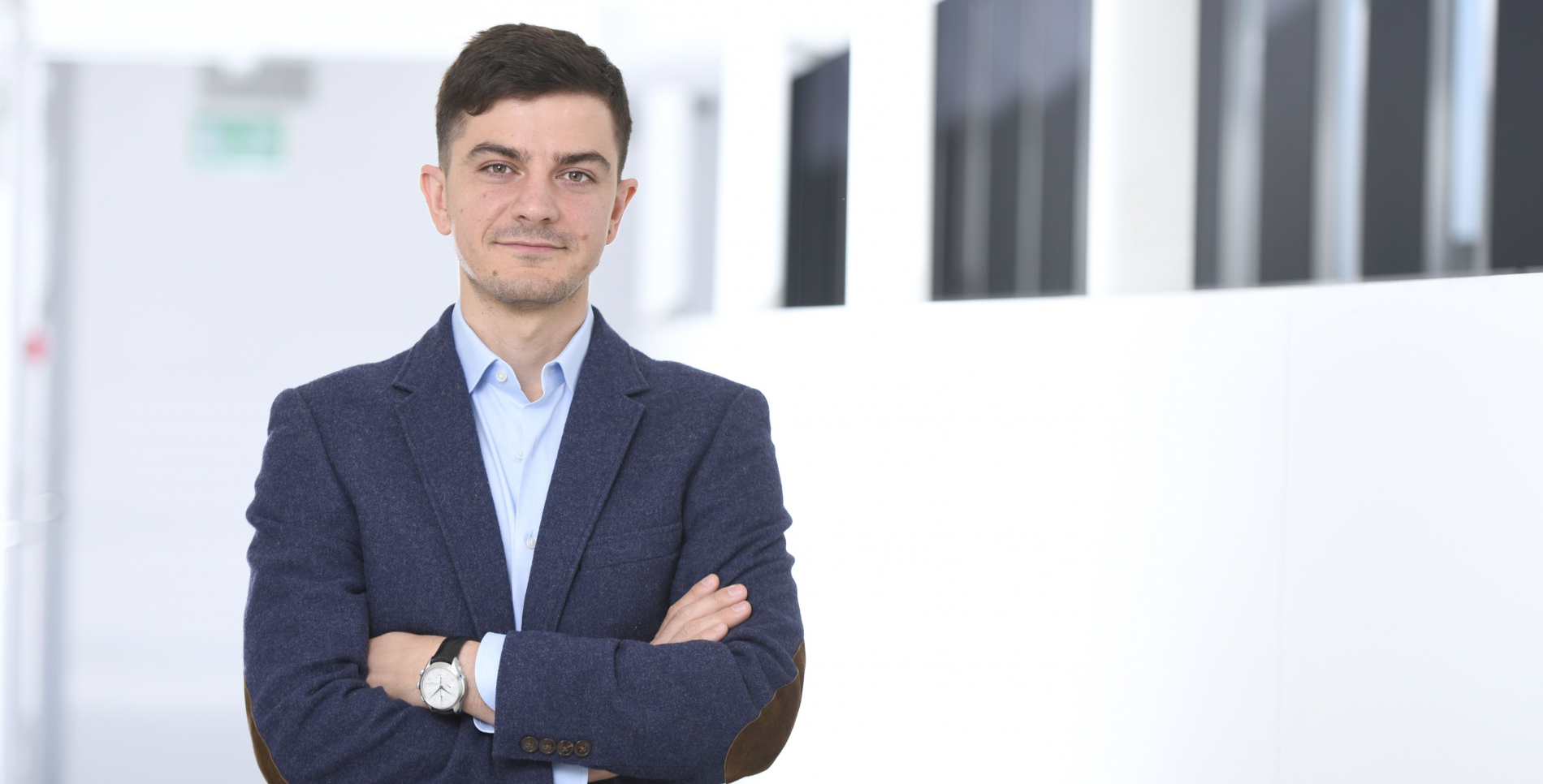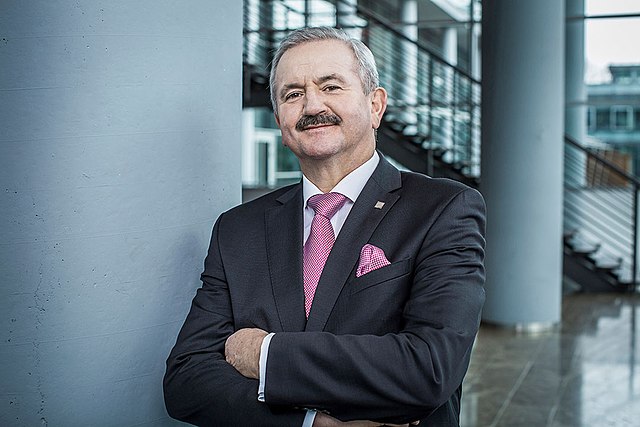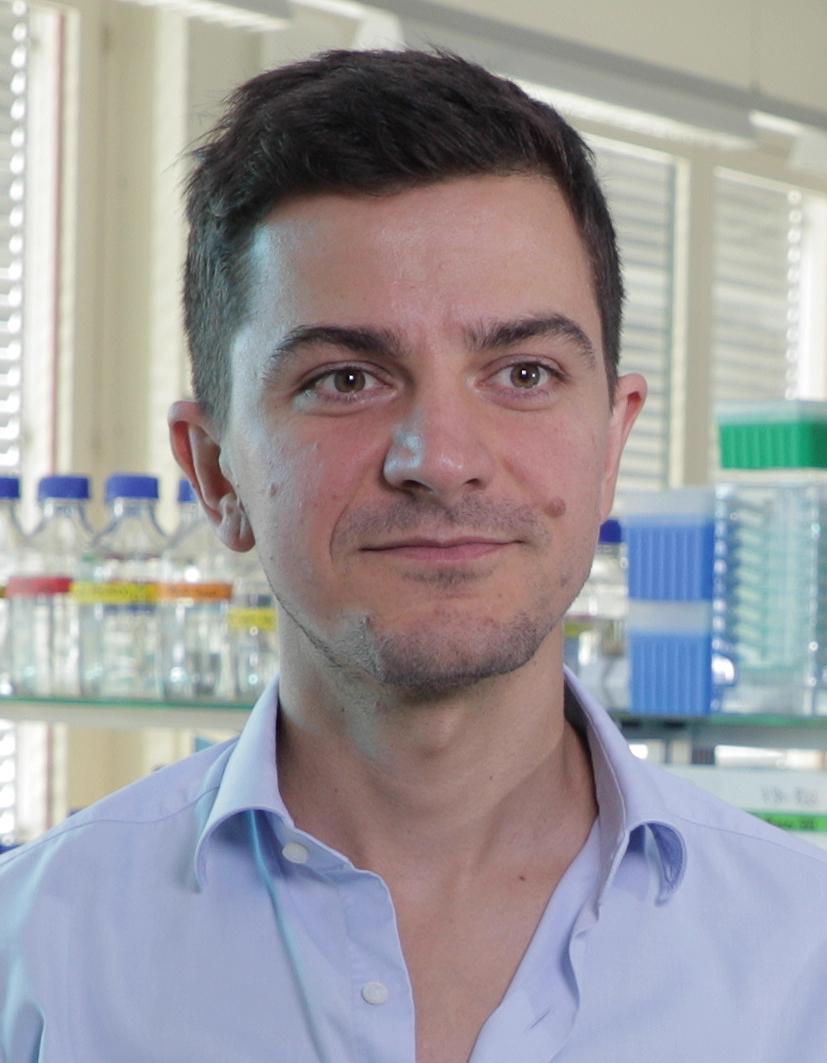YOUR BROWSER IS OUT-OF-DATE.
We have detected that you are using an outdated browser. Our service may not work properly for you. We recommend upgrading or switching to another browser.
Date: 15.11.2021 Category: awards, general news
The first-ever winner of the Stanisław Lem European Research Prize has been announced. The award has been granted to Prof. Randall J. Platt, a researcher working at ETH Zürich and expert in genetic engineering.

Aimed at supporting young scientists (up to 40 years old) studying or conducting their research in the European Union and associated countries participating in the Horizon Europe Programme, the Lem Prize is awarded annually for a recent discovery or significant achievement in the broadly defined fields of science and engineering, with strong elements of technology, interdisciplinarity, creativity, and vision.
The first winner of the new European research prize is Prof. Randall J. Platt of the Federal Institute of Technology in Zürich (ETH Zürich – Eidgenössische Technische Hochschule Zürich). The scientist was recognised as the best candidate by an international jury chaired by Prof. Reimund Neugebauer of the Fraunhofer Society.
– We were faced with an extremely difficult task, as almost 40 researchers from almost all fields of science entered the competition. After long deliberations, we decided to award the prize to Prof. Randall Platt. Already recognised in the world of science, his projects may have a positive impact on the future of our civilisation – said Prof. Reimund Neugebauer.
The President stressed that the winners' work could result in cellular machines capable of detecting various molecular, chemical, and physical characteristics of their environment and continuously recording this information using a DNA-based storage medium.
 – Such sentinel cells represent a powerful technology that could find applications in many fields – from storing DNA data to monitoring any environment – soil, oceans and air, and even our own bodies, added Prof. Reimund Neugebauer.
– Such sentinel cells represent a powerful technology that could find applications in many fields – from storing DNA data to monitoring any environment – soil, oceans and air, and even our own bodies, added Prof. Reimund Neugebauer.
Prof. Randall J. Platt comes from the USA, is 34 years old, and works at the Department of Biosystems Science and Engineering, ETH Zürich. There he built a research team to develop and refine applications of sentinel cell technology. Together, they aim to create radically new biomedical engineering methods.
– I’m happy that so many highly regarded young scientists have applied for the Stanisław Lem prize – said Prof. Arkadiusz Wójs, Rector of Wrocław University of Science and Technology. – I’m proud that the first, historic winner is a person whose research is already of real use in areas including the combat against cancer. I look forward to the arrival of Prof. Platt in Wrocław and his meetings with our young researchers. I believe that many of them will find him to be a real inspiration for further development.
The winner will receive prize money of 100 thousand PLN. In 2022, he will visit Wrocław and deliver a special open lecture and conduct scientific seminars at Wrocław University of Science and Technology. He will also meet with young scientists from the university’s Academia Iuvenum and students representing its societies and organisations.
– I am not only thrilled and honored to receive the Lem Prize for its own sake, but I am also extremely excited to visit Poland – said the winner.
The Stanisław Lem European Research Prize was established to commemorate the 100th birthday of the outstanding Polish science-fiction novelist, who received an honorary doctorate from Wrocław University of Science and Technology in 1981.
– I admire Stanisław and his contemporaries for their ability to envision the future of science and technology beyond what is even remotely feasible. This work does inspire me – added Prof. Platt.
The winner was selected by a committee composed of eminent scientists from foreign institutes and Wrocław University of Science and Technology, as well as Tomasz Lem, the writer's son.
The prize is sponsored by Nokia Solutions and Networks, Foundation – PGE Polska Grupa Energetyczna, SatRevolution, PKO Bank Polski Foundation, Bergman Engineering, Kaczmarski Group, and TestArmy Group.
***
 Prof. Randall J. Platt studied biomedical engineering at the University of Utah and Imperial College in London. In 2015, he received his PhD from Massachusetts
Prof. Randall J. Platt studied biomedical engineering at the University of Utah and Imperial College in London. In 2015, he received his PhD from Massachusetts
Institute of Technology (MIT), where his work focused on the development and application of CRISPR, a microbial immune system consisting of a repository of enzymes that can be used for gene editing and biotechnology.
The researcher is the author of the pioneering application of CRISPR in animal models. He used his solution, based on a platform that enables the rapid and efficient editing of genes in vivo, to study cancer development and autism. The platform is being used today in thousands of labs around the world and broadly enabling scientists to better understand health and disease.
Prof. Platt subsequently enrolled in a graduate school at MIT and worked at the University of Harvard and the Broad Institute in the USA. In 2016, he moved to Switzerland, where he was hired as an assistant professor at the Department of Biosystems Science and Engineering (D-BSSE) ETH Zurich and the Faculty of Chemistry of the University of Basel. In March 2021, he became an associate professor at both universities.
In Switzerland, Prof. Platt started his own laboratory. There, he and his colleagues researched the use of CRISPR proteins, which enable bacterial cells to “remember” prior viral invaders. His work aimed to engineer microbial sentinel cells capable of “recording” their responses to any stimulus – that is RNA, the product of gene expression – within a DNA-based storage medium.
This was a breakthrough in synthetic biology, providing an unprecedented means to preserve biological information and reconstruct the history of a population of cells as well as an entry point into creating living microbial cells capable of monitoring and diagnosing the environments in which they live, such as the human gut.
Prof. In 2019, he became the winner of the prestigious Latsis Prize at ETH Zurich, which is awarded to the best young scientists in Switzerland. In the same year, he also received an ERC Starting Grant, awarded to talented young researchers boasting significant scientific success.
Our site uses cookies. By continuing to browse the site you agree to our use of cookies in accordance with current browser settings. You can change at any time.